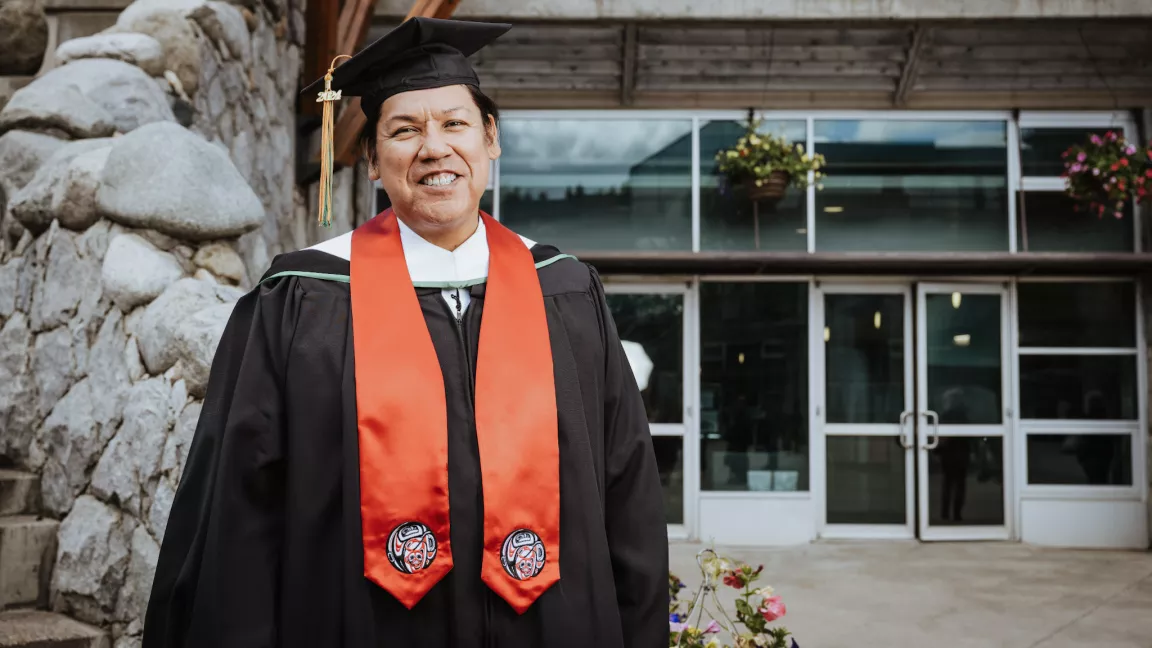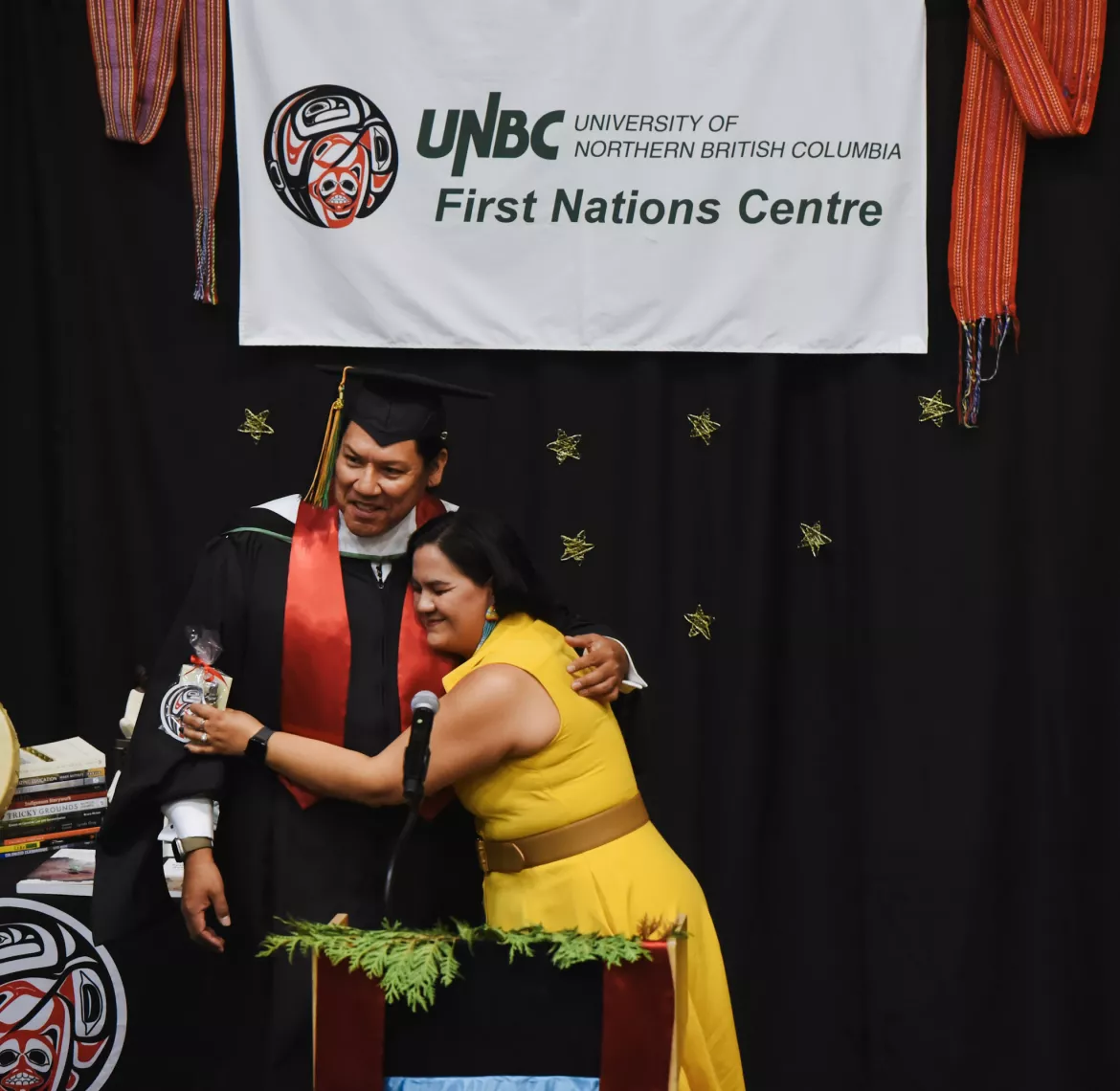Documenting Xitl'ix, an Indigenous restorative justice system
Pounamu Taonga Award recipient Gerald Bent examined the cultural and judicial practices of the Nlaka'pamux people during his graduate studies, highlighting the importance of preserving Indigenous justice traditions.

Prince George, B.C. - Gerald Bent was stopped at a red light while returning home from a training session in Abbotsford, B.C., when his cellphone pinged letting him know he received an email from UNBC.
“'I panicked,” Bent recalled. “I thought it was a rejection email thanking me for my application.”
Bent pulled into a parking lot to read the full message, and to his relief, it informed him he was accepted into the Master of Arts in First Nations Studies program.
“I was full of emotions,” he said. “I started to cry and was happy at the same time."
The message meant Bent would be able to begin his graduate studies, where he could use the knowledge and experience he gained working for the Correctional Service of Canada (CSC) in his thesis exploring Indigenous restorative justice techniques.

Five years after receiving that email, Bent completed his studies and earned his degree this spring. He was also a recipient of the 2024 Pounamu Taonga (Greenstone Treasure) Award, presented annually to graduating Indigenous students who excel in the classroom, serve UNBC in some capacity and are involved in their communities.
Bent’s work with the CSC is focused on the rehabilitation and support of Indigenous, Two-Spirit, and Transgender inmates and he wanted to find a way to connect that experience with his knowledge of traditional practices from the Lytton Indian Band, part of the Nlaka’pamux Nation. Despite the demanding nature of his job, Bent felt a calling to return to academia, driven by a desire to deepen his understanding and preserve Indigenous justice traditions.
His thesis, Nlaka'pamux Justice Systems: An Investigation of Xitl'ix and the Lytton Restorative Justice Prevention and Education Program delves into the traditional court system of his Nation and its current restorative justice program. It was both an academic exercise to document an understudied facet of Indigenous justice systems and a vital act of cultural preservation.
"My heart and my spirit were telling me that I should research and write about Xitl'ix and my Indigenous community's restorative justice program," he said.
Supported by his Chief and Council, Elders and community members, Bent navigated a series of challenges, not the least of which was the COVID-19 pandemic which forced him to re-think how he could connect with knowledge holders in a safe and respectful way. As a result, he created Virtual Sharing Circles to conduct his research.
“I felt like quitting my graduate program more than once," he admitted. "But to all Indigenous graduate students at UNBC, when you feel like giving up, take a breath, go for a walk, talk to your Elders, reach out to your friends and family, or go for a smudge to help clear your head. It is alright to ask for help from your supports. If I can finish a graduate program, you can too!”
Throughout his time at UNBC Bent was involved in the University community. He facilitated a workshop with Inspiring Woman Among Us and provided guest lectures for undergraduate classes, willingly sharing his knowledge with others.
His Pounamu Taonga award recognizes that involvement and the impact he’s had on UNBC. Created more than a decade ago by visiting scholar Dr. Graham Smith from the Maori University, Te Whare Wānanga o Awanuiāran, the award is presented annually at the First Nations Centre Graduation.
"I want to thank UNBC First Nations Studies, and my good friend, and Indigenous sister Penina Harding for nominating me for the Pounamu Taonga Award," Bent says. "Receiving this award means a lot to me, as it acknowledges my academic achievements, my service to the university, and my involvement in my community."